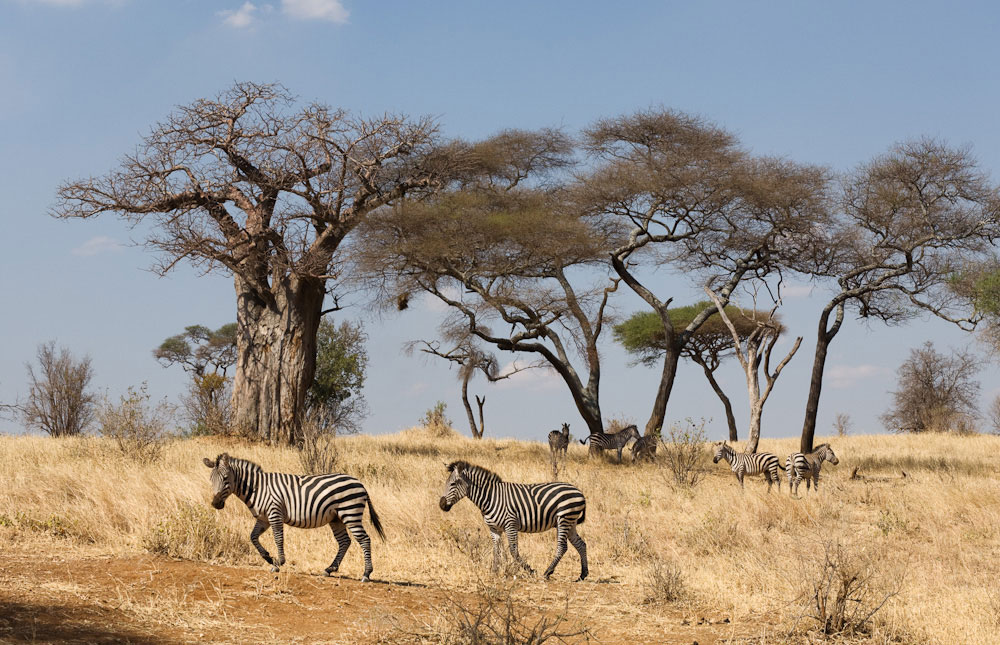
About Tarangire National Park
Size: 2850 sq km (1,096 sq miles).
Location:118 km (75 miles) southwest of Arusha.
Best time to visit Tarangire
Best time to go: June to October (Animals congregate around the Rivers)
High Season: June to October (The park is full of tourists)
Low Season: April and May
Best Weather: June to October (Rainfall is little to none)
Worst Weather: March and April (Peak of wet season)
Tarangire National Park
Day after day of cloudless skies.
In Trangire tour be prepared to see variety of wildlife like antelopes, zebras, buffaloes, giraffes, lions, hyenas, oystriches, Impalas,monkeys. Tarangire is perfect choice in case you are limited with time, but would still like to taste a true wild Africa. If you decide to come to Tarangire at all, then we recommend spending a few days in the south of the park, which gets few visitors and retains a real air of wilderness. The fierce sun sucks the moisture from the landscape, baking the earth a dusty red, the withered grass as brittle as straw. The Tarangire River has shrivelled to a shadow of its wet season self. But it is choked with wildlife. Thirsty nomads have wandered hundreds of parched kilometres knowing that here, always, there is water.
Herds of up to 300 elephants scratch the dry river bed for underground streams, while migratory wildebeest, zebra, buffalo, impala, gazelle, hartebeest and eland crowd the shrinking lagoons. It's the greatest concentration of wildlife outside the Serengeti ecosystem - a smorgasbord for predators ~ and the one place in Tanzania where dry-country antelope such as the stately fringe-eared oryx and peculiar long-necked gerenuk are regularly observed.
During the rainy season, the seasonal visitors scatter over a 20,000 sq km (12,500 sq miles) range until they exhaust the green plains and the river calls once more. But Tarangire's mobs of elephant are easily encountered, wet or dry. The swamps, tinged green year round, are the focus for 550 bird varieties, the most breeding species in one habitat anywhere in the world.
Activities at Tarangire
Walking Safari
Game Drivers
Balloon Safari



